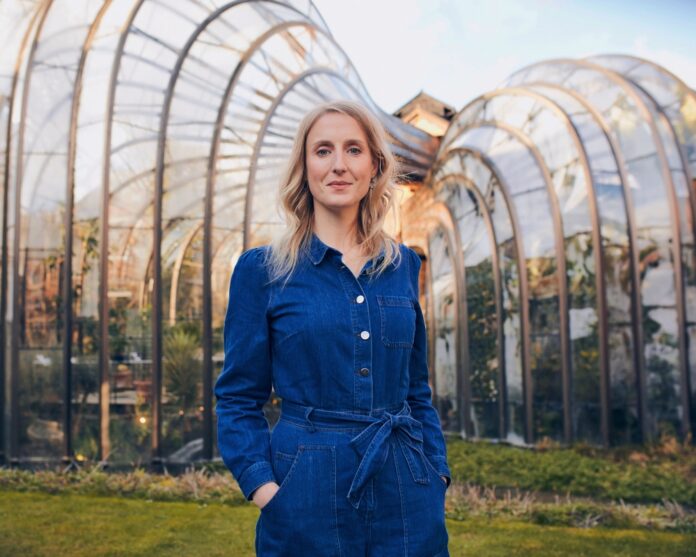- Bombay Sapphire master distiller Dr Anne Brock grew up in a small town called Kenilworth, in the UK. She’s one of three siblings who all ended up pursuing science studies at university
- She studied chemistry for eight years at Oxford University and completed her PhD in organic chemistry in 2012
- Thanks to her love of science and desire to find a career that she isn’t only passionate about but taps on her inner creative, she soon found herself distilling gin
- In 2013 she joined a small gin company, Jensen’s Bermondsey Gin in London for four years, where she was charged with building the distillery from scratch, before joining the Bombay Sapphire team in 2017
- Under her watch, along with more than a dozen of equally passionate team of distillers, she produces and fulfills the global demand of several gins within the House of Bombay umbrella, including Bombay Sapphire and Bombay Dry
- The limited edition Bombay Sapphire Premier Cru is the latest exceptional spirit brought to life by Dr Brock’s creative expertise
- At a time when sustainability has become a cooperative imperative, Dr Brock is tasked with ensuring that Bombay Sapphire distillery commit to the UN/UK’s net zero emissions by 2050. Likewise, she has transformed the brand’s state-of-the-art Laverstoke Mill distillery in Hampshire to be a zero waste-to-landfill site, and has subsequently implemented robust strategies (*highlighted at the end of this article) to ensure all the waste botanicals used in the gin process is transformed into enough green electricity to power ten average homes per year
- Among her stellar achievements, Dr. Brock sits on the Gin Guild board of directors since 2015. In 2019, she was featured in the 50 list for the International Wine & Spirit Competition (IWSC)
- Her exceptional craftsmanship as a distiller, and most importantly her efforts to promote and educate about the wider gin category has seen her being named the Master Distiller of the Year in the Icons of Gin 2021 awards by Gin Magazine, and better yet, she’s inducted into the Gin Hall of Fame in September 2023
Bombay Sapphire master distiller Dr Anne Brock’s illustrious journey in the world of gin distillery is stuff of legends. We are talking here about someone who audaciously abandoned safe medical career aspirations for an uncertain job as a bartender, before later swapping professions after obtaining a doctorate in chemistry to become a gin distiller.
While turning and combining her passion for science and the creative world of gin crafting into an enviable career seems like has always been a rosy journey, that’s not precisely the case.
Just to take you back to how it all started, Dr Brock wanted to be a surgeon from a young age, and started out at a medical school, aged 18, with the aim of joining the world’s leading medical humanitarian organisation, Médecins Sans Frontières/Doctors Without Borders. But that wasn’t to be. “While I loved the thought of being a doctor, I wasn’t enjoying my studies, I felt like it wasn’t my calling. So I dropped out and went to work as a bartender in bars and restaurants in the UK for a couple of years.”
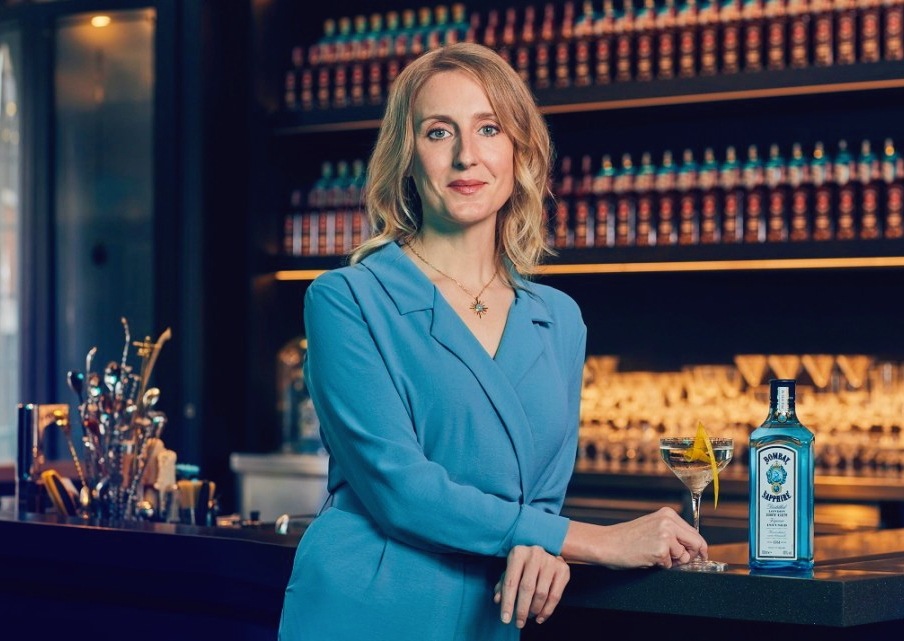
Her career journey took another drastic turn when she decided that she needed to go back to university, so she enrolled for an organic chemistry studies at Oxford University, and obtained her PhD in 2012.
It wasn’t long before she became a force to be reckoned with in global gin circles, first as a master distiller for one of the world’s premium gins, to sitting on the board of The Gin Guild, to having being recently inducted into the Gin Hall of Fame. What with her most pressing role as an advocate for sustainability in the gin world, helping in the process, push forward Bombay Sapphire’s mission to become the most sustainable gin in the world.
Needless to say, her illustrious career journey and achievements serve as an inspiration to ignite the passion for generations to come, reminding us of the many viable career pathways that exist within the realm of gin distillation.
Likewise, in this (Q&A) article, Dr Brock shares her journey, insights for others to emulate to carve successful career in gin distilling.
Meet The Boss: Q&A with Dr Anne Brock
Welcome to Johannesburg! How are you finding South Africa so far?
It’s my first trip to South Africa and I’m just really enjoying exploring the lively culture, great vibe, amazing bars and restaurants. Everyone is just so friendly. It’s also just a stunningly beautiful country as well. We visited the Cape Town School of Jazz
Shortly after arriving for the official launch of Creator’s Hub in Cape Town, we visited the the Cape Town School of Jazz where we had an incredible time. I also got taken to Stellenbosch to see some wine farms on Wednesday afternoon.
Interestingly Johannesburg is so different from the other two cities. It’s like you’re living in completely different countries, it’s crazy, fast but I love the vibe. The industry and the bartenders I have interacted with, as well at people that work at Bacardi that got to meet are all truly amazing.
The gin culture in the UK is undeniably popular and quite vibrant. How are you finding the culture of gin in South Africa comparably?
It’s really cool to see that gins are loved all over the world, and I know South Africa has a very vibrant gin category. So it’s been great to what people are doing with the gin. I went to Sin+Tax (pronounced ‘Sintax’) cocktail bar in Rosebank Bar last night, we had Proud Mary and a couple of delicious cocktails.
I found that the cocktails here are a bit on a sweeter side, like the Passion Fruit we had on the night, it was so juicy, delicious and sweet. Unlike here, in London we have it your Terragronis, the classic Martinis, with sort of a bit drier or bitter profile. That’s the biggest change I’ve noticed so far. Obviously, you’ve got different ingredients you can play with here to London. We had this incredible cocktail at Sintax that had an oyster leaf on the top, which I’ve never had before … it actually tasted like an oyster. It was bizarre, but good at the same time.
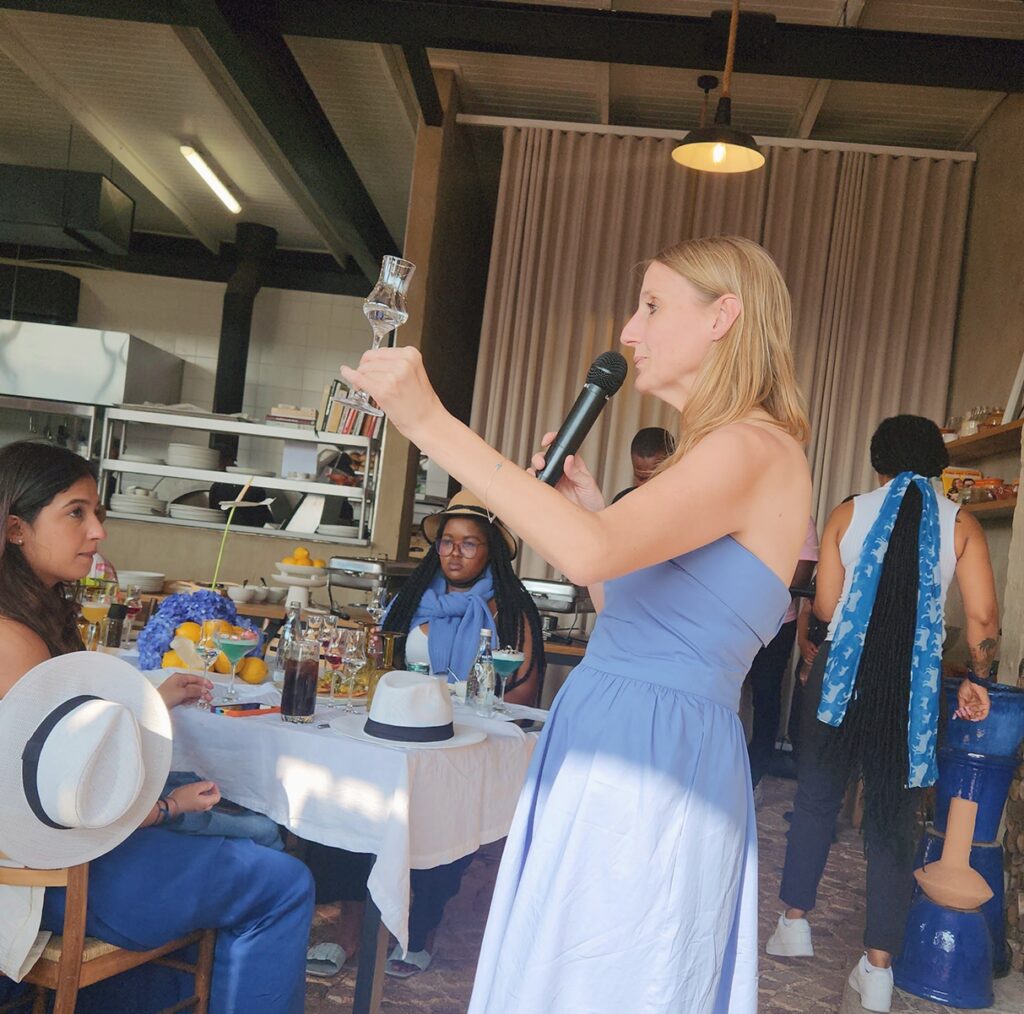
Now onto much more serious stuff; your current job as global a master distiller for Bombay Sapphire, and your academic credentials. Why distillery, when you went as far studying and obtaining a doctorate in chemistry?
Before I went to do chemistry I was actually a bartender for many years. So it was a way of bringing the two sides of my life together that I’m both passionate about; science and bartending. Although the science that I was doing in the chemistry lab had obviously nothing to do with gin, and some of the processes like distilling were very irrelevant, there’s some sort of a crossover I would say. The big difference obviously was that in the lab I could not drink. But it was just that practical approach to the creation and the handling of the liquid that really helped.
Any chance of returning to chemistry job-wise, like doing research, teaching and so on?
To clarify, it’s not just the distillery, but the industry that got me this hooked … the hospitality industry is just so wonderful I must say. As you can see, I get to come to such wonderful places like South Africa, meet these wonderful people that I never knew before. You know, we have this commonality as a close-nit group of people that help and support each other. It’s a kind and wonderful industry to be part of … it will be very hard to leave.
It’s been six years since you joined Bombay Sapphire. What has been the highlight of your job so far?
There’s lots of things I love, like being responsible for one of the world’s biggest gin brands from a production point of view. It can be quite intense, but it’s also an honour, you know. I think one of the things I love the most is that I can walk into a bar in Johannesburg and get a cocktail made with my gin. It’s incredible, and I’m so lucky that it is part of my job. I’m really passionate about the category (gin) and ensuring that it stays healthy.
What do you mean by intense?
Obviously it is a big responsibility and you want to make sure that you create the perfect Bombay Sapphire each and every time. It’s a not a big pressure per se to do that, but personally I want to do the best Bombay Sapphire there is out there.
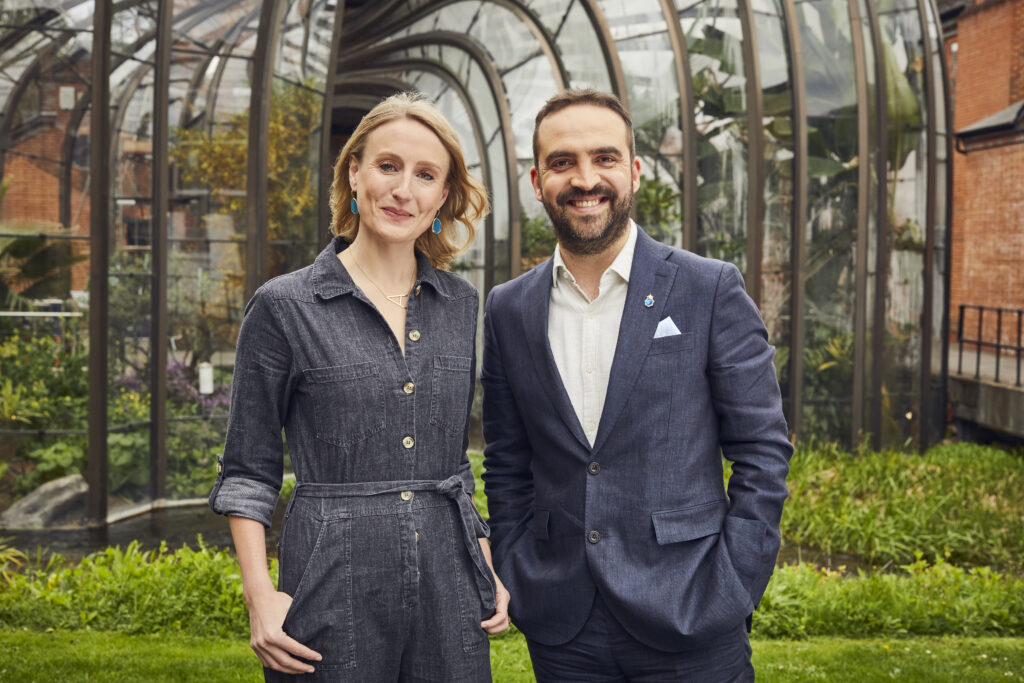
A big part of your job is to ensure the brand is eco-friendly in every way possibly, something that has had you fully invested judging by the incredible work Bombay Sapphire has achieved. Why is sustainability such a big thing for you -personally and professionally?
For me personally, it’s a challenge to make some of the changes needed to reduce the impact of climate change on the planet. I look at the world around me and see the damage that climate change is doing, and I think that while I’m representing a brand like Bombay Sapphire that is leading the Gin category, it’s important that I share our story for others to learn from, and for some to grow with us on our sustainability journey.
For Bombay Sapphire itself, it’s a brand that has always been passionate about sustainability: Everything from the way that we source our botanicals, to the technology that we use in the distillery to allow us to reduce their impact on the planet. We’re not gonna stop where we are, we gonna keep pushing because we really need to do everything we can to lesson our impact on the environmental. That’s actually why I’m doing this category, to do the best we can for the good of the planet.
What are some of the efforts Bombay Sapphire are taking, under your watch, to achieve zero waste?
As you’d know, companies all over the world are required, at some point, to be more sustainable and commit to net-zero omissions by 2050. As Bombay Sapphire, we are playing our part by making sure we monitor, on a daily basis, all of our green gas emissions so we can reduce waste. We are continuously investigating new alternative technologies to help us achieve that. It’s not an easy journey, but I think industries and distilleries across the world have to be looking at this seriously.
Part of your trip to South Africa was to inaugurate the Creator’s Hub in Cape Town, and share and impart knowledge with participants. Why is mentoring, and supporting young people coming in the industry is important to you?
Someone told me that they came to know about the world of gin distilling because they saw an article written about me. That’s how I realise how powerful it is for me to be out there, talking to the press and representing a brand like Bombay and educating women coming into the industry and others about gin, good distilling practices and how the industry operates. It’s something I’m very passionate about that I get to do whenever I get a chance to.
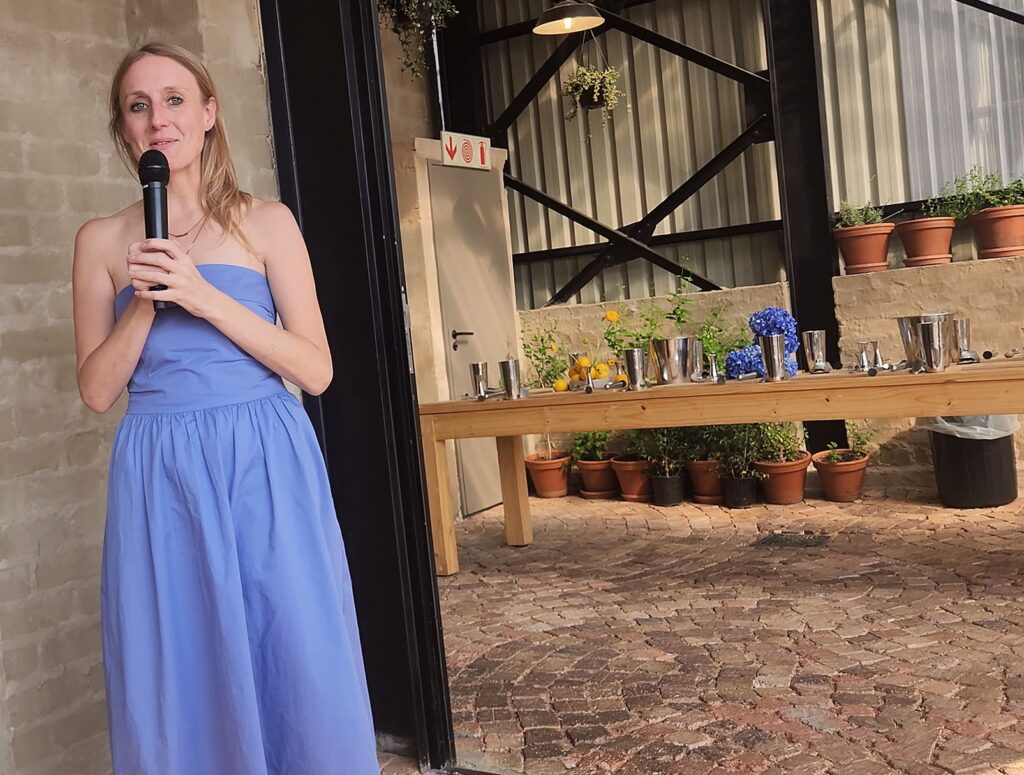
Most women continue to be restricted to limited range of occupations than men. Which is why a job like yours draws instant admiration in a country like South Africa, where unemployment is at its peak. But more than anything, it speaks to the importance of following one’s true passion, and equally so why people should shun careers based on gender stereotypes. What’s your advice?
I’ve been incredibly lucky in my career, I know that. But one of the things that I made sure was that I wanted to do something that I love because I wanted to get up on a Monday morning and look forward to going to work. I think often having observed how the formal education system works, we get acquainted in a certain way, and focus on these incredible vocational jobs like doctors, lawyers, teachers, but there’s a lot more out there.
One of the things you can do, if you’re interested in trying to get into distilling or in being a journalist like yours is to reach out to someone in your local space doing that who’s willing give good advice, and let you into their journeys. I personally try to support people that reach out to me. In fact Bacardi has a program called Shake Your Future, which I’m really passionate about. It’s an incredible free training program that gives people an opportunity to develop a career in the art of bartending, and they can get a role within the hospitality industry.
And this industry is fantastic, you know. Though people often don’t think of it as a proper career, it can be … it can be so fulfilling. At the Creatives Hub in Cape Town, we had a guy called Shingo Gokan, he’s from Japan and he’s a bartender and an entrepreneur. He now owns eight different bars around the world (three of these sit in The World’s 50 Best Bars 2019 list, backed by four in this year’s Asia’s 50 Best Bars ranking).
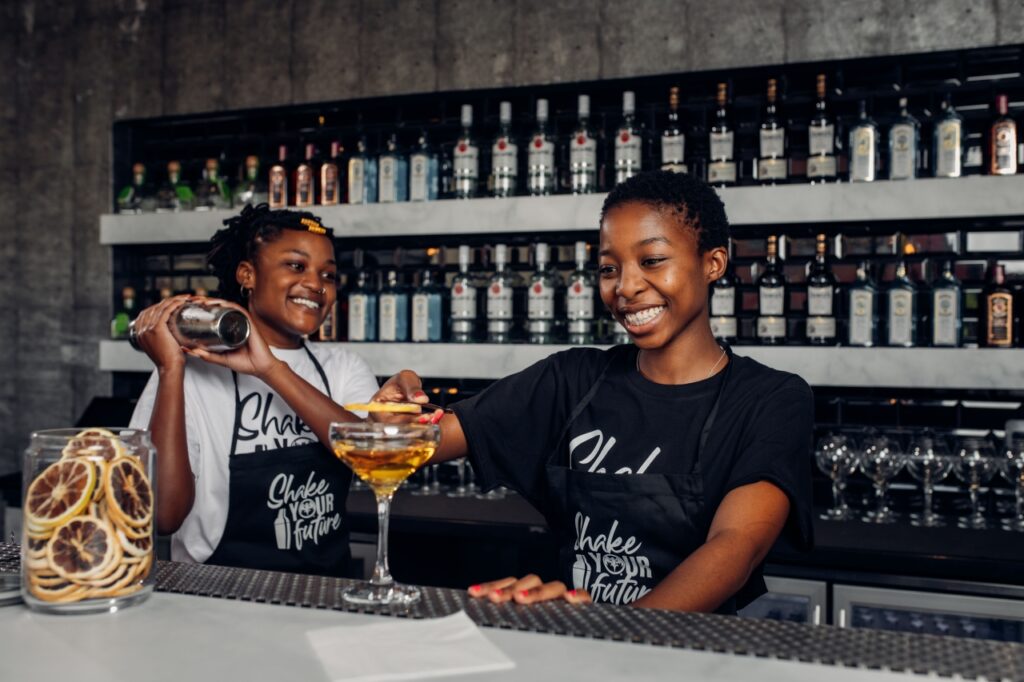
This a good job for people to have, and it’s a scaled job (it has multiple salary grades that differ based on job market data) … it’s not just a stopgap filler. And it can open doors, because a lot of people I work with, whether they’re distillers, brand ambassadors or in the sales teams, they often start down behind the bar.
Every career journey is filled with its own set of problems. What are some of the hurdles you’ve had to learn to navigate in your journey to the top?
I think one of the hurdles is the preconceptions that ‘I can’t do the job I’m entrusted with’. ‘I am not really good at distilling’. But what I do tend to find, especially with Bacardi, is that I work with people that are really supportive. The company as a whole is really trying to promote diversity and leadership, which is an incredible opportunity for everybody within the Bacardi company. And the industry is very male dominated, but I’ve been very lucky that they’ve been very supportive. Yes, you do get the odd idiot with very old fashion views, but they’re so few and far between.
So it does go a long way to have a company that’s supportive of diversity, right?
Definitely, definitely. You know you do have to educate people and company leaders about their own unconscious bias. Get them to recognise where they might be making mistake in hiring and missing opportunities of getting in more diverse people. People think different and approach creativity in unique, different ways. The more diverse the team, the more successful you are.
I believe we’ll challenge each other when we hold hands and grow together, and I’m lucky that Bacardi feels that way. It’s doing a lot to add that diversity to the business.
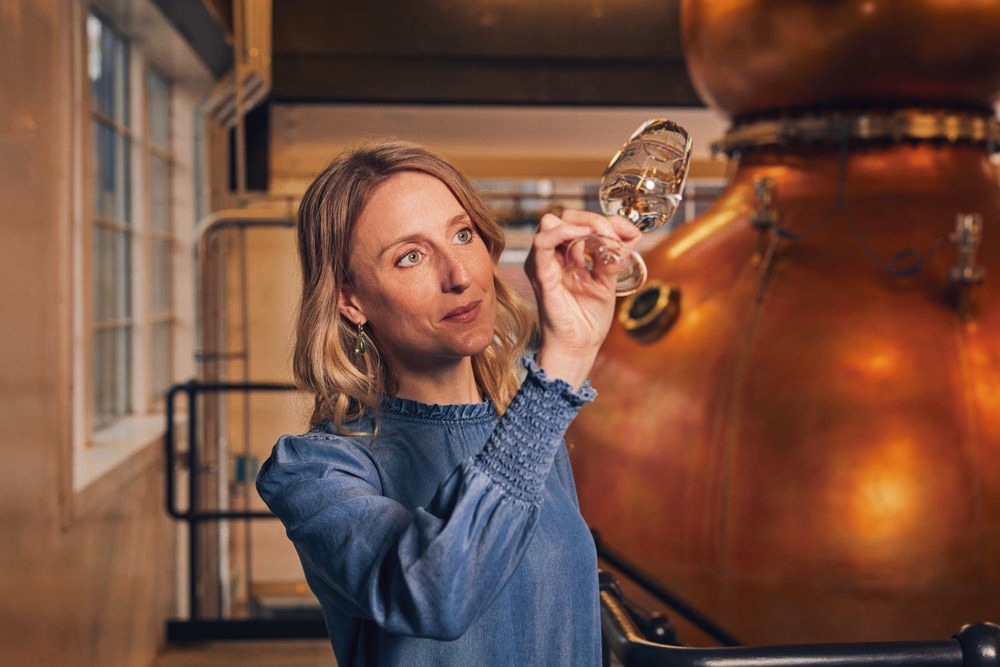
If you were to change one thing in your industry, what would that be?
I would love to see a greater understanding of what we do as an industry … the greater good that we do. Of course, we make alcohol, which helps people celebrate different moments in their lives. But I’d really want people to understand that some of our distilleries are really part of the community they live and grow up in. They provide opportunities for local people … we give people an opportunity to work for a great company.
Also I want people to be more exposed to some of the work that we do around sustainability and maintaining the planet, because there’s so much that goes into every bottle of Bombay Sapphire that we don’t talk a lot about.
Our distilleries are based in rural areas, so we bring out job opportunities into the business. We hire very locally, and give people a chance to be employed by great company, that isn’t based in the city. Also some of the sourcing of the botanicals require us to work with the farmers and the growers. This ensures we invest back in local communities.
In closing, when all is said and done, how would you like others to define your legacy?
I would love to be seen as a true champion of gin education. I want to pass on the knowledge, leave behind people that can become just as good if not greater distillers, and lead the industry.
When I was in the gin crafting world before I joined Bombay Sapphire, I used to run gin classes for people thinking of setting up their own craft distilleries. Some of them went on to start their own successful distilleries, and others managed to set up this incredible brands that I saw flourish from around the world. That’s something that felt good to witness … the knowledge that what I had to share was so useful that they’re able to create something so big and incredible. Nothing beats that feeling.”
Bombay Sapphire’s creditworthy sustainability efforts under Dr Anne Brock’s watch
- Bombay Sapphire is the first global gin brand to use 100% sustainably sourced ingredients, after being awarded with the “For Life” certification by Ecocert in 2022.
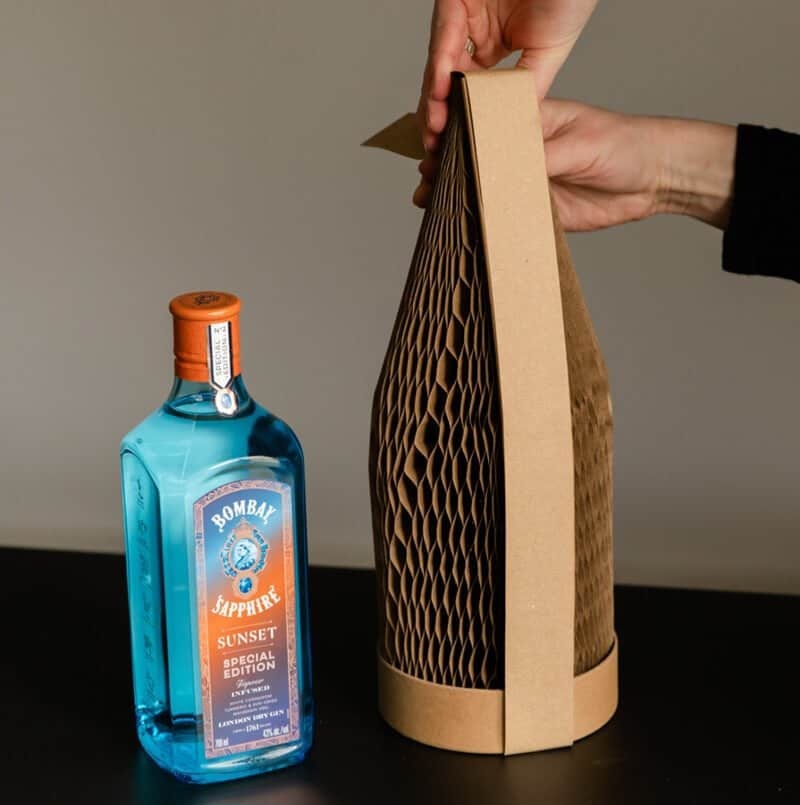
- Reinforcing the company’s desire to create a world class gin brand built with sustainability at its very core, Bombay Sapphire is working with Flexi-Hex on the their journey to be plastic-free by 2030. Furthermore, its bottles are now made from 1/3 recycled glass, with 100% of what goes on the bottle including the label and cap-closure now recyclable.
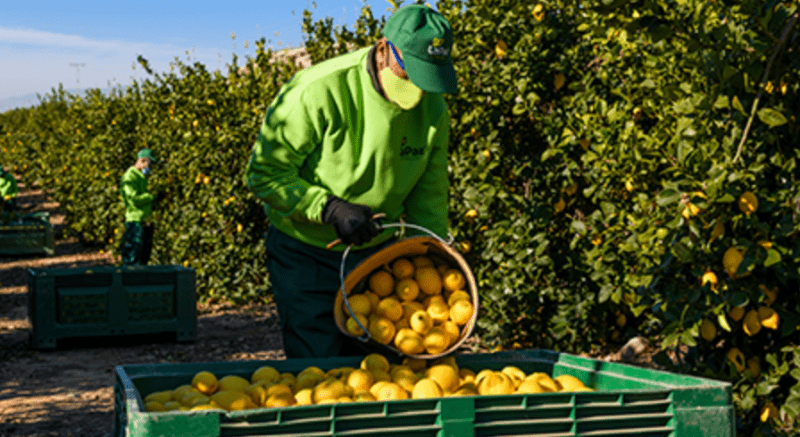
- Not only that, last year the Bacardi-owned brand created a new lemon-forward gin to highlight its sustainability efforts. With production led by Dr Brock, Bombay Sapphire Premier Cru has been made with hand-picked lemons from a single harvest in Murcia, Spain, a country renowned for its highest quality of fleshly produced lemon than anywhere in the world, as well as satefy standards. By investing in sustainable agriculture practices, the brand is not only helping protect the environment, but the livelihoods of farmers for generations to come.

